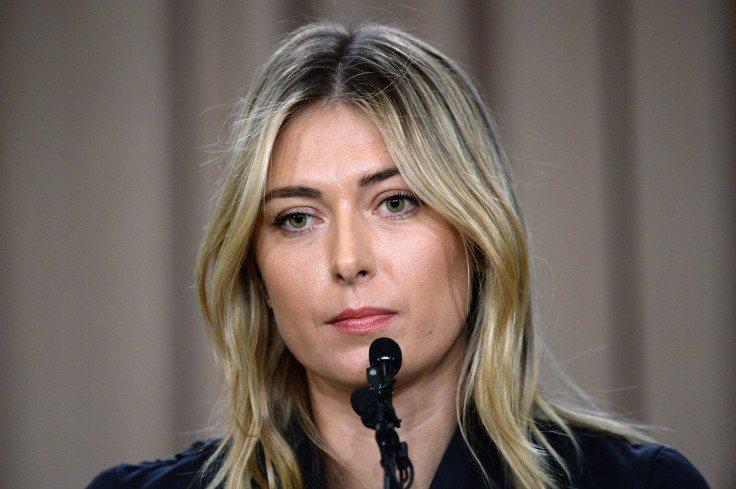When Will Maria Sharapova Play Next? Doping Ban Suspension Reduced For Tennis Star

Maris Sharapova described Tuesday as “one of my happiest days” after learning that her two-year doping ban from tennis had been reduced to 15 months, allowing her to return in time for next year’s French Open. The Court of Arbitration for Sport (CAS) ruled that while she bore some degree of fault for failing a test for the recently banned drug meldonium at January’s Australian Open, it was through “no significant fault” of her own.
The original ban was imposed by the International Tennis Federation in June after it found that Sharapova was responsible for the substance being in her system. Sharapova argued that she was unaware the drug she had been taking since 2006 had been added to the World Anti-Doping Agency’s (WADA) banned list at the start of 2016. The five-time Grand Slam champion insisted she took the substance, which increases blood flow and improves exercise capacity, for health reasons and had “not tried to use a performance-enhancing” substance.
Immediately, the 29-year-old Russian announced her appeal to CAS over a ban she claimed was “unfairly harsh.” CAS ruled Tuesday that it “does not agree with many of the conclusions of the tribunal.”
“The panel found that Ms Sharapova committed an anti-doping rule violation and that while it was with ‘no significant fault’, she bore some degree of fault, for which a sanction of 15 months is appropriate,” read the CAS report.
“The panel wishes to point out that the case it heard, and the award it has rendered, was only about the degree of fault that can be imputed to the player for her failure to make sure that the substance contained in a product that she had been taking over a long period remained in compliance with the anti-doping rules.”
CAS also reserved harsh judgment for WADA, the ITF and the Women’s Tennis Association’s (WTA) for its efforts to inform athletes that meldonium, also known as mildronate, was being added to the banned list.
“Little effort was made by WADA or the ITF to notify athletes and chiefly those from eastern European countries, such as the Player, of the introduction of meldonium in the 2016 Prohibited List,” the statement continued. “In the same way, the WTA did not issue any specific notice related to mildronate/meldonium.”
Sharapova responded straight away on Facebook, presenting the verdict as a victory and describing her joy at the chance to return to the court in just over six months’ time.
“I’ve gone from one of the toughest days of my career last March when I learned about my suspension to now, one of my happiest days, as I found out I can return to tennis in April. In so many ways, I feel like something I love was taken away from me and it will feel really good to have it back. Tennis is my passion and I have missed it. I am counting the days until I can return to the court,” she wrote.
Sundayzzz 🎾 pic.twitter.com/FwX9ZM6XtX
— Maria Sharapova (@MariaSharapova) October 2, 2016
In the days leading up to the verdict, Sharapova had been tweeting images of herself on the practice court in anticipation of a return to the game. She will now be eligible to play beginning April 26, 2017, during the European clay-court season.
It means Sharapova, who began an 11-year streak as the world’s highest-paid female athlete after winning Wimbledon as a 17-year-old in 2004, could compete at the French Open, the Grand Slam tournament she won in both 2012 and 2014. However, as will be the case with all top tournaments she hopes to enter upon her return, Sharapova will have to rely on a wildcard invitation, having lost all her ranking points.
© Copyright IBTimes 2024. All rights reserved.





















